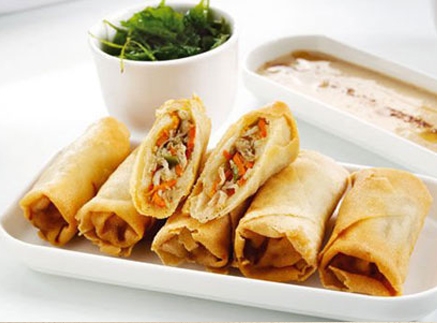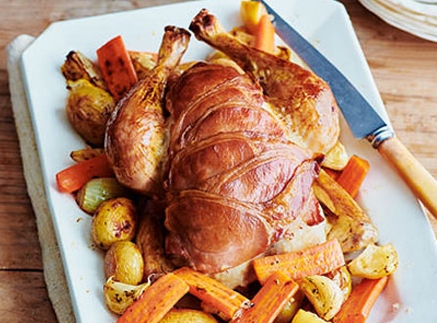ABOUT MERMAID
"Choose wisely and stay fit and healthy"
Mermaid was established in India ,under the able guidance and vision of Mr. Haresh Tolani,. Mermaid is a reputed and reliable in Seafood Trading and Frozen Product Distribution. Mermaid has grown by leaps and bounds since its inception and has carved a niche for itself by delivering high quality Frozen food. Our global network and long term relationships with the leading food companies of the world is also one of our greatest assets using this network along with our global presence. We are able to derive a great synergies asset that is unique to very few in the food industry.
Our experience and expertise of doing business in various continents is one of our major strengths, our team includes several individuals with close of thirty years of experience. Mermaid is led by a strong management team and a bevy of experienced professionals Being a customer-focused company.
Mermaid offers products covering all the 4 major product categories :

Frozen Sea-Food

Frozen Meat

Ready To Cook Veg Food

Ready To Cook Non-Veg Food
Frozen Seafood :
With an increasing number of working couples juggling daily chores with project deadlines, there is hardly any time left for cooking. This is the time when frozen meals like parathas(Indian bread), pizza, burgers come to their rescue. Frozen produce is picked at peak season and then immediately frozen to retain nutrients and freshness. Meat freezes beautifully and contains nutrients including protein, minerals and vitamins A and D that are unaffected by the process.
On-board freezers and fast-freezing technology mean fish can be frozen within hours of being caught, so nutrients are well preserved. Frozen fish also tends to be cheaper — by about 25 per cent — as it’s easier to transport. It can still taste fresh and firm after groups are just as good purchased frozen as they are fresh. In some cases, they may actually be better, because if you keep vegetables and fruits in your fridge for a long time, they lose some of their nutritional value. Whereas, buying them frozen and then defrosting when you want the fruit/vegetable can actually retain more nutrients.
Vitamin loss in frozen vegetables is not too great. A study by the Institute of Food Research has shown that frozen vegetables do have more nutrition than fresh vegetables. The nutritional value of a fresh vegetable drops quickly during it's packaging, shipping, and shelving interval, whereas frozen veggies had a shorter pick to pack interval and more nutrients are preserved than in fresh. Commercially frozen chicken is often blast chilled or flash frozen to preserve as much nutrition, texture and freshness as possible. Frozen chicken has a nutritional profile similar to fresh chicken, as the process does not use any preservatives, although blast-chilled chicken may have more additives. A 3-ounce serving of raw, skinless fresh chicken has 101 calories per serving, with a little over 18 grams of protein and only 2.6 grams of total fat. Chicken is also a source of iron, potassium, vitamins K and A, and B vitamins, particularly niacin. Peas, green beans lose a lot of vitamin C within hours of being picked. When foods are canned or frozen, they are usually processed and packaged within hours of being harvested. This retains their nutrients until they are defrosted which should be just prior their consumption. The freezing technique itself, just like the frozen food market, is developing to become faster, more efficient and more cost-effective.
- It preserves ingredients - Maybe you like to buy shrimp in bulk, or perhaps you have more cheese than you can use before it goes bad. Freezing these ingredients extends the shelf life. It’s especially great if you are cooking for one, but still want to take advantage of bulk deals.
- Seasonal ingredients are always available - You can buy fruits and veggies when they’re cheaper in season, and then freeze to be used during other seasons.
- You’ll always have meals - By freezing leftovers, there’s no need to buy frozen foods, and they’re great to have as back-ups for nights when you don’t have the energy to cook.
So what foods can be frozen ?
- Dairy products, such as milk, cheese, yogurt, butter, and eggs.
- Fruits and veggies.
- Both raw and cooked meats and seafood.
- Tofu and tempeh.
- Meat or veggie stock.
- Cooked pastas and noodles.
- Soups, stews, and casseroles.
- Pesto, tomato paste, and tomato sauce.
- Bread, tortillas, and baked goods.
See? Anything goes! But the most important thing in freezing foods is how you prep them for freezing. Some of these foods will require less prep and will freeze better than others, so keep this in mind when you shop. Our favorite easy-to-freeze items are raw meat, cheese, and canned tomato products.
Cooking methods :
Properly freezing and storing foods in the freezer ensures a longer shelf life and less food in the trash.

